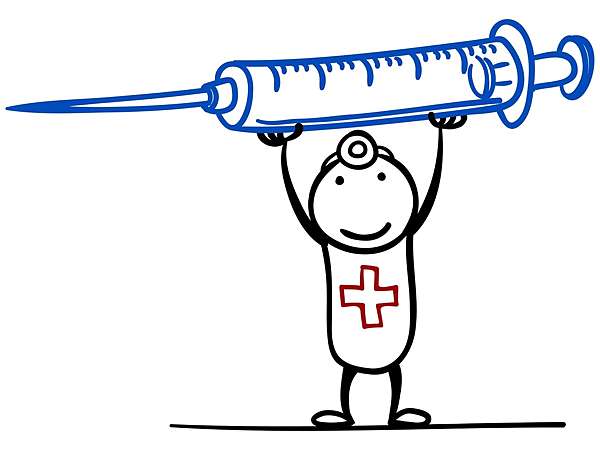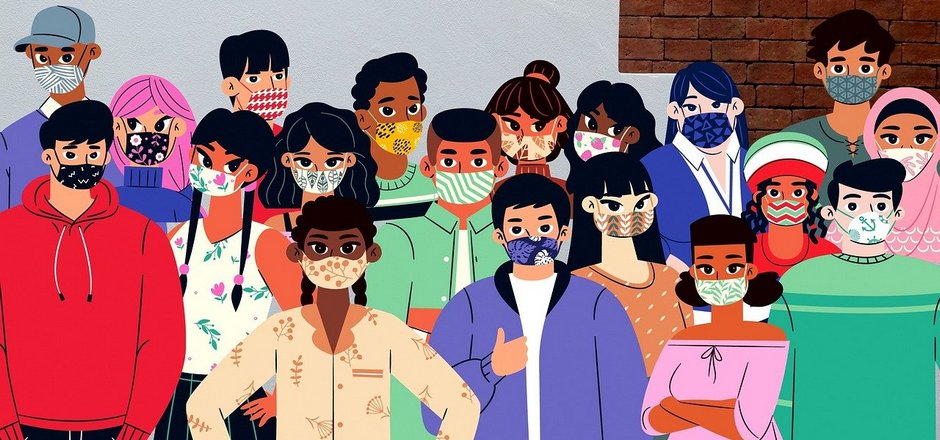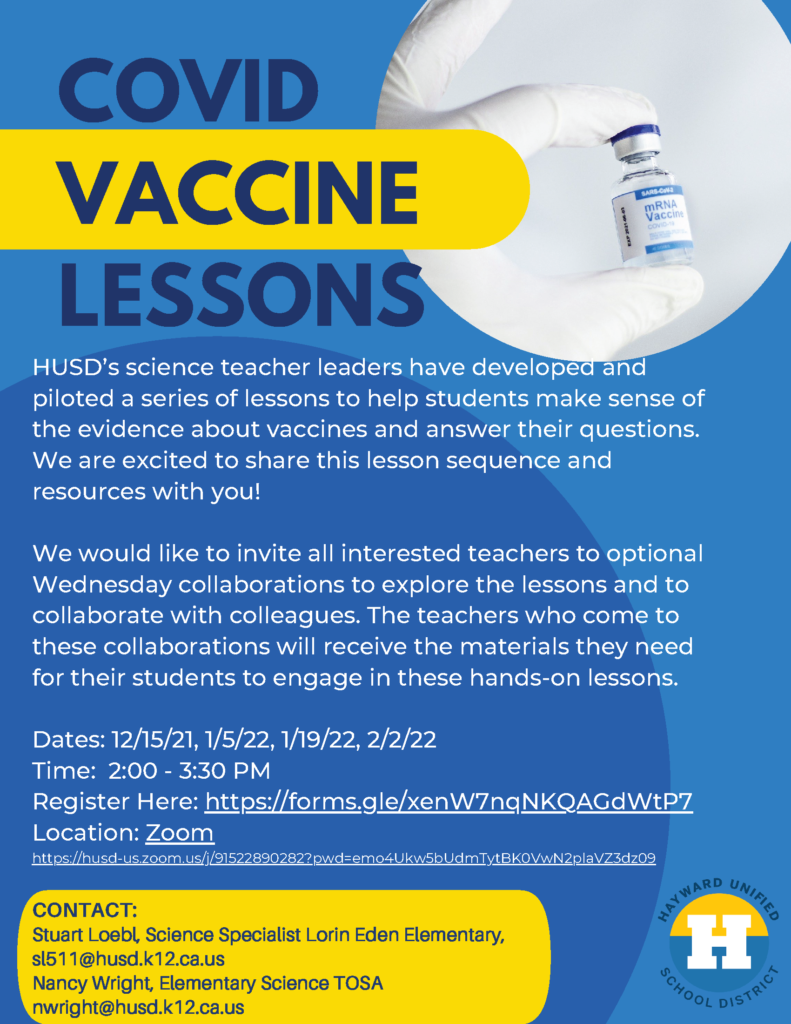
Now more than ever it is critical to empower students and their families with the understanding they need to feel good about getting vaccinated. That’s why we’re so excited to share these hands-on and teacher tested lessons to help kids make sense of vaccines.
We have broken our unit down into four lessons to navigate the essential science of COVID-19 vaccines:
Lesson 1: What is coronavirus? Click here for the full lesson plan
This lesson kicks off the unit with a reflection exercise that activates students’ prior knowledge and experience with the COVID-19 pandemic. Hands-on activities then help students understand how the virus invisibly travels through the air, and why wearing masks are important. By the end of the lesson, students should understand what a virus is, how COVID-19 affects people, and how to prevent its spread.
Lesson 2: How do vaccines work? Click here for the full lesson plan
In this lesson, students learn about the immune system and how vaccines work to combat viruses. In order to make sense of how vaccines work, students will play a game in which they model how the immune system rids its body of pathogens.

Lesson 3: How do we know vaccines are safe and effective? [Click here for the full lesson plan]
In this lesson students read about the history of vaccine development past and present. They then analyze and make sense of data about the number of people in the world who are vaccinated, and what happens to the health of communities that are more vaccinated compared to those that are less vaccinated. The lesson ends with a hands on model that allows students to make sense of the fact that some people still get sick even when they’re vaccinated but that even so vaccinated communities and individuals are safer than those that are not vaccinated.

Lesson 4: How do we keep our community safe? [Click here for the full lesson plan]
It is important to acknowledge that it can be uncomfortable to teach topics which are controversial. Nevertheless given that powerful affect that teaching about vaccines can have on the well-being of communities, we encourage all educators to be brave and enter that awkward space knowing that your efforts will be rewarded through the impact you will have on your students. We hope that the many tools provided throughout this unit will help teachers navigate any challenges that might arise. Please know that the Hayward Science community is available to support you in any way we can.
Why teach about vaccines, and what else should I know about this unit?
Making vaccine information and resources easily accessible is an urgent public health and safety priority. Educators can play a powerful part in that endeavor by dispelling misinformation and answering student and family questions about vaccination. Teachers often work in diverse classrooms with students from communities that are disenfranchised from the health care system. We are therefore in a unique position to provide critical information to those communities that are slipping through the cracks of public health outreach. Communities of color have been disproportionally impacted by the pandemic, and are some of the least vaccinated groups in the country. By teaching our students about vaccines we can use our unique position as educators to help reverse those trends.
Since caregivers are ultimately the ones who decide whether a student gets vaccinated, we have made family engagement central to this unit. For homework students are asked to talk to their families about what they have been learning in class, and bring back questions that arose through their family discussions. Through this process we hope families will work collaboratively with their children to make sense of vaccine information.
Beyond the public health imperative, teaching about vaccines is a highly engaging approach for students to learn and develop critical scientific skills. In this unit students are asked to conduct experiments, analyze qualitative and quantitative data, make sense of scientific models, engineer solutions to difficult challenges, develop and defend arguments from evidence, read and write about the history and process of scientific discovery, and engage in many other processes that are essential facets of science. Because the COVID-19 pandemic has had such an enormous impact on every facet of life, kids are highly motivated to learn about it and engage in these processes. As such teaching about vaccines provides a unique opportunity to develop vital skills by leveraging a topic that is highly relevant and interesting to students. As evidence accumulates that providing relevant, responsive, and sustaining curriculum is a critical aspects of effective teaching,1,2,3 it seems that the imperative to teach about something as relevant to students as COVID-19 vaccines could not be more apparent. All students, whether already vaccinated or not will benefit.
The lesson plans and resources we provided have grade specific adaptations to ensure they are developmentally appropriate for students in Kindergarten through Sixth grade. Although not specifically developed for upper-middle and high school teachers, there are many activities and resources which could easily be modified to work for those grade levels. If you are interested in collaborating to make these lessons work for students in upper grades, please [get in touch].
Professional Learning Opportunities
We are committed to helping teachers feel comfortable teaching about vaccines in whatever way we can. Below you’ll find information about a few currently scheduled professional learning opportunities. Please get in touch if you would be interested in us bringing our Professional Development to your school or district.
PROFESSIONAL DEVELOPMENT FOR TEACHERS IN ALAMEDA COUNTY
The Elementary Science Partnership, a professional development (PD) partnership of the Alameda County Office of Education, will be hosting a PD on February 19th, 2022. The PD will provide a space for teachers to familiarize themselves with the classroom lessons, as well as to learn adult level content about the coronavirus vaccine from Cal State microbiology Professor Nazzy Pakpour. Lunch and materials to teach the lessons will be provided. A registration link and more details are coming soon!
Collaboration Opportunities for teachers in Hayward Unified School District
We will be hosting Zoom spaces during Wednesday collaboration time for HUSD teachers to familiarize themselves with and plan for teaching the vaccine lessons. Materials needed to teach the lessons will be provided to all participating teachers. We’ll meet from 2:00-3:30 on 12/15/21, 1/5/22, 1/19/22, 2/2/22. You’re welcome to attend as many collaborations sessions as you need for as long as you’d like. See the flyer below for more information, and register here.

